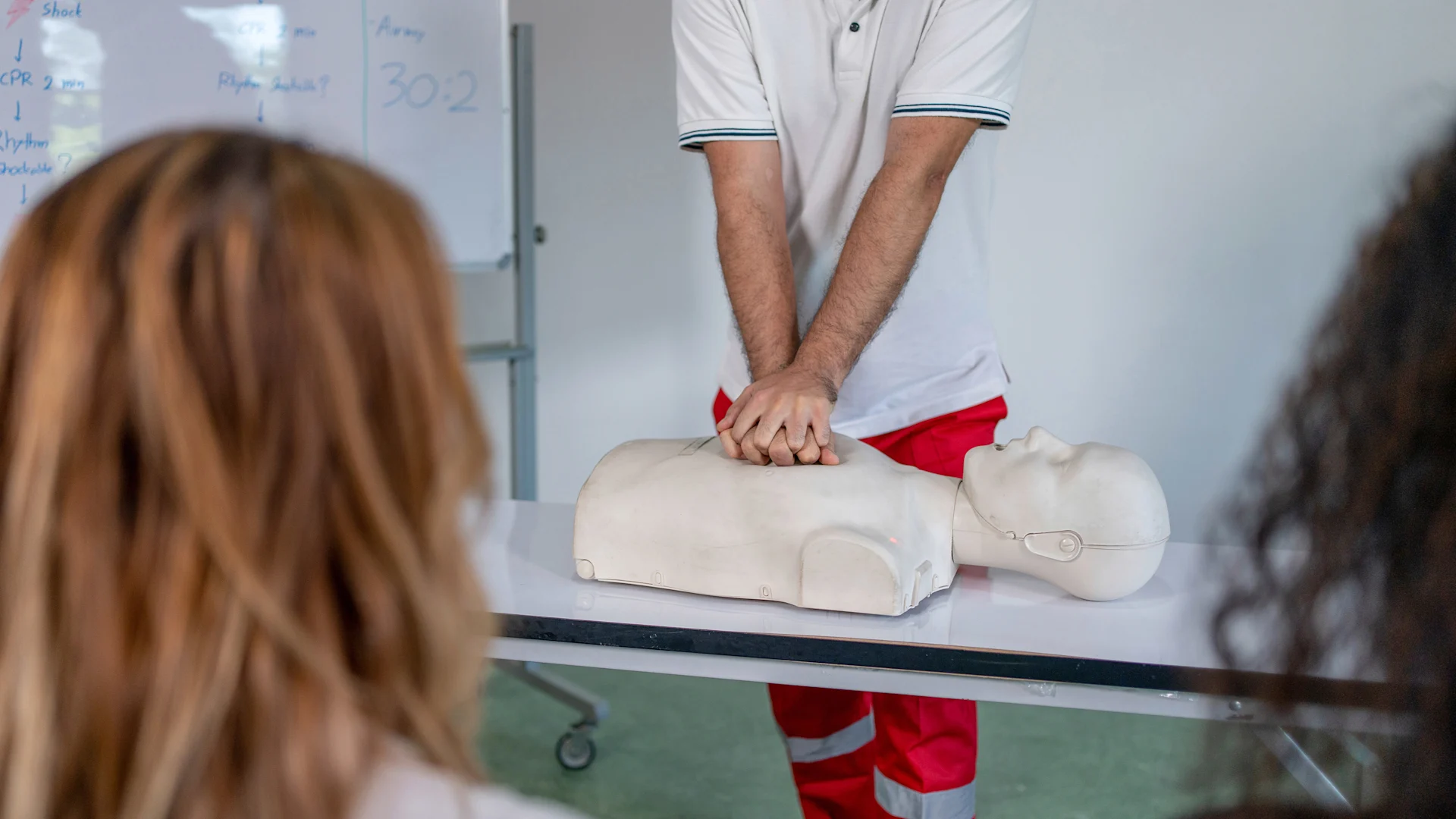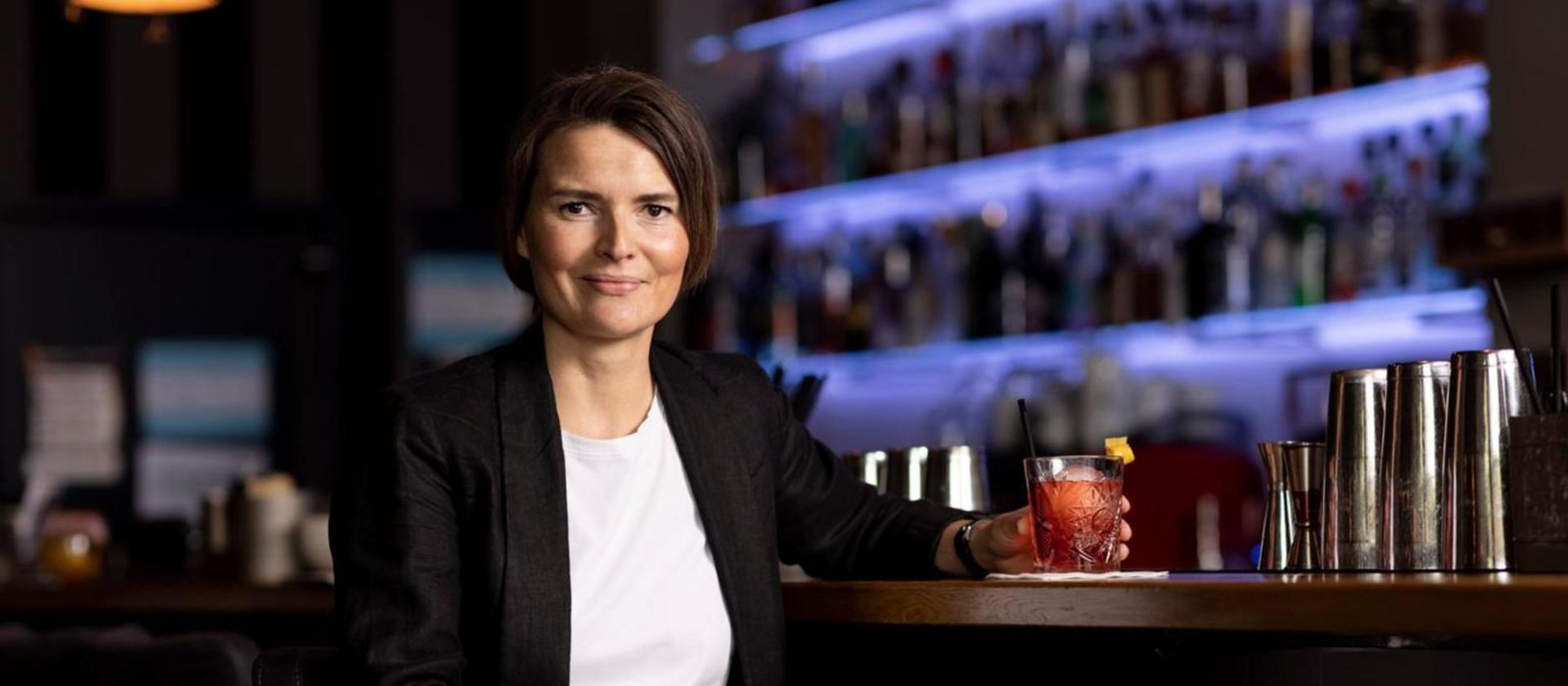
Put your first aid knowledge to the test
What should you do first at the scene of an accident and how can you help someone having an epileptic fit?
navigation

Lifestyle
Maria Brehmer has sworn off alcohol and now she helps others to quit drinking. She explains why abstainers are still regarded as odd.
Maria Brehmer, you haven’t drunk any alcohol since January 2021. How did this come about? Was there a lightbulb moment?
In fact over the years, there were many moments. I suffered from hangovers from time to time and often thought that it would be so nice if I didn’t feel the urge to drink any more. Back in 2020, I had already made a new year’s resolution to start an attempt to stop. That turned into me quitting altogether.
Would you say that, medically speaking, you were an alcoholic?
I didn’t meet all the criteria of an alcoholic. For example, I never had any physical withdrawal symptoms if I didn’t drink for a while. I must have been a grey area drinker. But at some point I realised that I was psychologically and emotionally dependent, meaning that I felt a craving for alcohol in certain situations. That’s why I wouldn’t say that you need to wake up in the morning with sweats and the shakes, to have a problem with alcohol.
How much were you drinking back then?
Three to four evenings a week, two to three glasses each time, and on one of those I would be noticeably intoxicated. About once a month I would get properly drunk.
That’s not so much.
That’s right, and that’s what’s so deceptive. Many people think that it is only really dangerous if you drink more than one bottle a day. But if your thoughts constantly revolve around alcohol, something is out of balance, regardless how much you consume. For example, my emotions would tell me that I wanted to drink more. But my mind was saying: “It’s not good for you!” That’s why I set myself rules like “only two glasses of wine three times a week” or “alcohol just once, but lots of it”. That was how it was in the last few years before I stopped, but I could never really control my consumption.
So you wanted to give more space to reason.
The main thing was that I no longer wanted to have these exhausting internal debates. And I realised that if I wanted to get rid of my inner conflict, I had to give up alcohol completely. I do think it’s nice to enjoy a glass of wine now and again. But I was no longer prepared to pay the price.
Did you have any physical symptoms?
Yes. But much worse were withdrawal symptoms such as irritability, anxiety, inner agitation – whenever I wasn’t drinking “enough” so to speak. I was always waiting for the next opportunity for a drink. But when I had “enough” to drink, I had hangovers. Then my heart would race or skip beats, I would have nightmares and sweats, sometimes for five days. I often felt sick. That was too much of a bad thing for the few moments of enjoyment.
How did you end up drinking more alcohol than was good for you?
Alcohol makes most people feel more relaxed and relieves nervousness and stress. And I learned in my youth that I could improve my mental state with alcohol. It’s also totally human to want to feel good, so I would never condemn alcohol consumption. But it means that you stop developing other ways to make yourself feel good.
So you drink a glass of champagne at a party and relax. What is it like for you today?
A little more difficult. I love going to functions, but I can’t stand too much noise and too many people at once. The alcohol always used to put a kind of filter over it, and I no longer have that. So I drink a non-alcoholic beer, a tonic or a mineral water and go out for some fresh air every so often. I don’t usually stay as long as I used to because it’s more stressful than it used to be.
You claim: “A day without alcohol is not the same as a life without alcohol.” What do you mean by that?
After my decision, I immediately felt calm and content. But this is only possible when you know that there is no next glass, no waiting for the next opportunity. I no longer have to think about my consumption. In the past, I always wanted to compensate for my drinking with exercise, detox cures, juice days, fasting, yoga and so on. I imposed so much on myself that it was very exhausting. (Laughs)
Don’t you do that anymore?
I still do mindfulness exercises – but unlike before, I eat potato chips and chocolate without a guilty conscience and sometimes more than two plates of pasta if I feel like it. And I’ve still lost five kilos, even though I’m doing less exercise than before. In addition, my skin has improved, I sleep much better, I am more efficient, more concentrated and am never tired during the day. My boyfriend sometimes says I’m in an unbearably good mood – that’s meant kindly, of course, and it’s true. I also feel more creative again.
That all sounds great, but let’s be honest: nothing can replace that sweet little buzz you get after a glass of wine on an empty stomach.
That’s probably true. But my quality of life has improved so much that I simply no longer feel the need for that sweet little buzz.
Are there signs of a general turnabout in drinking habits?
Yes, more and more non-alcoholic drinks are available, such as non-alcoholic red wine and aperitif and gin alternatives. Increasing numbers of young people think it’s cool not to drink alcohol. I’ve also noticed one or two series on Netflix where a walk in the woods is preferable to resorting to a bar to deal with problems. I read somewhere that the same thing will happen to drinkers as to smokers: people will congratulate those who quit. At the moment, people still tend to think I am a bit odd.
Is the environment also changing?
Yes, and for the better. For example, I found that my best friends all drink very little. I used to encourage them to drink, so they’re very happy that I’m no longer breathing down their necks. I also sometimes had arguments with my boyfriend because I used to get emotional when I was under the influence of alcohol. That no longer happens. My boyfriend still drinks a glass now and again, and it doesn’t bother me at all. And there is drink available when we have visitors. Most of the people I know drink alcohol. You have to come to terms with this because you don’t want to be locked up in a room alone.
What would make it easier for more people to give up alcohol?
We should stop treating abstainers as if they had been heavy drinkers. You don’t have to have been a heavy drinker to want to stop. That’s how we could make it a little easier for everyone to decide to live without alcohol.
Have you never had a relapse?
Admittedly, I do get a craving when I see a misted glass of chilled rosé. Because it reminds me of being in Provence! On holiday! But straight away, my new thinking mode kicks in and says “Nope, not worth it”. Then I treat myself to a mint cordial.
What would have to happen for you to drink alcohol again?
I can’t imagine anything. I now know that not drinking gives me strength, drinking does not.
Which organs are most affected by alcohol, why you should have alcohol-free days or weeks – and how do alcohol breaks help with addiction? You can find the answers to these questions – and many more – here.
Excessive alcohol consumption can lead to liver damage. Almost everyone knows that. However, it is not the only substance that can damage your liver. Here are some tips on how to look after it.
Want to learn more about our commitment to health? Dive into our stories and discover inspiring contributions.